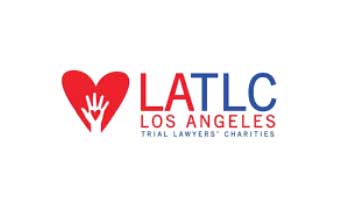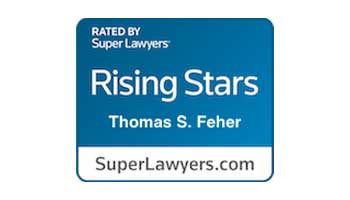California Retaliation Lawyers
Free Evaluation Available

- Top Rated Trial Firm
- Over $100 Million Recovered For Clients
- No Fees Unless We Win
FEATURED ON






In California, employees are afforded extensive protections under Labor Code Section 98.6. This necessary provision shields individuals who take action to assert their rights in the workplace, whether it involves filing a claim with the Labor Commissioner, initiating legal proceedings related to labor rights, or speaking out about unpaid wages.
Understanding how full protection under Section 98.6 often requires the assistance of legal experts. With this in mind, a skilled attorney from Feher Law can provide invaluable guidance and representation, helping individuals understand their rights and pursue appropriate action when those rights are violated.
From initiating legal proceedings to advocating for fair treatment in the workplace, we are a powerful ally for California workers subjected to unlawful retaliation.
What Sets Feher Law Apart
When you opt for Feher Law Firm, you’re not simply selecting legal counsel – you’re enlisting a collaborator committed to all things employment law.
Our tailored and concentrated approach guarantees that our tactics are specifically designed to address your situation’s unique hurdles and requirements:
- Thoughtful Strategies: We acknowledge the emotional upheaval often accompanying employment legal affairs, particularly in matters involving wrongful termination, discrimination, and retaliation. Our empathetic approaches strive to assist you during vulnerable periods.
- Proficiency in Litigation and Trials: Our expertise spans every stage of the legal journey, from initiating claims to managing intricate litigation phases and, if necessary, representing you in court. With a profound comprehension of procedural intricacies and strategic prowess, we are steadfastly dedicated to passionately advocating for your cause.
- No Initial Costs: We operate on a contingency basis, meaning you won’t face upfront expenses. Charges are only applicable upon the successful resolution of your case, ensuring that we share in the goal of achieving favorable outcomes without imposing financial strain.
CASE RESULTS
RESULTS FROM OUR MOST RECENT CASES
Meet Your Retaliation Attorney Team
Born from the collective vision of Tom and Erica Feher, Feher Law embodies a fusion of client-centered values and legal expertise.
Our origins are in Los Angeles, but our reach extends throughout California, where we stand as staunch advocates for those affected by negligence. At the core of our advocacy lies a deeply human ethos.
We believe every individual deserves justice, delivered with compassion and unwavering professionalism. What most us so driven is that the rest of our team below share the same values:
Our Clients' Voices
Read through our collection of client testimonials to gain insight into the quality of service and dedication we bring to each case.
It’s clear they genuinely care about their clients and about maintaining strong professional relationships.
A special thank you to their senior case manager——-Omar. He’s outstanding extremely trustworthy, communicative and always on top of the details. He makes the entire process smooth and efficient.
We look forward to continuing our collaboration and strengthening our foundation.
I was really impressed with the speed with how they were able to work to close and settle my case!
Props to Omar and the rest of the team at Feher!!
I want to express my sincere appreciation for your hard work, (Omar ) and his dedication to get me the policy limit and decreasing as much as he could for my pocket. I am thankful for your efforts and consideration as well as empathy towards my case. I do want to note he worked as fast as he could and I really am thankful. Please consider feher law, as well as Omar.
Helpful 0
Thanks 0 Love this 0 Oh
Having a legal team who are honest, clear, and genuinely care makes all the difference.
I’m so grateful I found Tom and his team early on. They were so patient, kind, and always made me feel supported, even on the hardest days. In the end, I feel they got me the best settlement possible, and that peace of mind means everything.
I’d recommend them to anyone who needs legal help, especially if you’re dealing with a TBI…they really go above and beyond 💛✨
On top of that, Omar reduced my medical bills from $36,000 down to just $8,000, which made a huge difference in how much I was able to keep from the settlement.
He kept me updated throughout the process and made sure everything was handled professionally. I highly recommend Omar and Feher Law to anyone who needs someone in their corner after an accident.
A special thanks to Gizi, whose guidance throughout the process was invaluable. Gizi’s dedication, knowledge, and unwavering support made a significant difference, helping me navigate with confidence and ease. Gizi was there every step of the way, ensuring I was informed.
The entire team at Feher Law demonstrated exceptional skill and commitment, and I wholeheartedly recommend their services to anyone in need of expert legal representation. Thank you Feher Law for turning a challenging situation into a positive outcome.
Ron s
I will refer This Law Firm to all my family, and friends.
California's Legal Retaliation Laws
In the state of California, stringent laws safeguard employees from retaliatory measures instigated by their employers in response to protected actions.
These actions include but are not limited to:
- Reporting discrimination or harassment
- Participating in investigations
- Lodging complaints
- Taking medical or family leave
- Blowing the whistle on wrongdoing
These protective measures are enforced through state statutes such as the California Fair Employment and Housing Act (FEHA) and various federal laws and regulations, such as Title VII of the Civil Rights Act, the Americans with Disabilities Act (ADA), and the Age Discrimination in Employment Act (ADEA).
For an employee to substantiate a retaliation claim, they must illustrate the following:
- Engagement in a protected activity
- Endurance of adverse employment repercussions
- A demonstrable causal link between the two occurrences
Employers are expressly forbidden from retaliating against an employee exercising their rights under these statutes, and those found engaging in retaliatory or adverse actions may face legal repercussions.
What Constitutes Illegal Retaliation at Work?
Illegal retaliation in the workplace manifests through various actions. These are the most common but are by no means the complete list:
- Being terminated or demoted
- Issuance of unjustified negative performance evaluations
- Imposing unreasonably heavy workloads
- Denying opportunities for advancement or salary increases
- Withholding access to training programs
- Disseminating false information concerning the employee
- Subjecting the employee to physical or verbal harassment
Retaliation Actions That Are Protected
In the Golden State, anti-retaliation statutes stand as robust guardians of employees’ rights and workplace safety. These laws meticulously outline protected activities, ensuring that workers can advocate for fair treatment without fear of reprisal.
Here’s a detailed breakdown of these safeguarded actions:
- Reporting Discrimination, Harassment, or Unsafe Conditions: Employees have the right to report instances of hazardous working conditions, harassment, or discrimination to their employers or relevant authorities. This protection extends to both verbal and written complaints.
- Whistleblowing: Anti-retaliation laws shield employees who report illegal or unethical behavior within their organization. Whether it involves financial fraud, safety violations, or other misconduct – whistleblowers are protected from retaliation under California law.
- Participating in Investigations: California law explicitly shields employees who participate in internal or external investigations into workplace misconduct. This includes cooperating with HR inquiries or external investigations conducted by regulatory bodies.
- Filing Workers’ Compensation Claims: Workers’ compensation laws provide essential benefits to employees who sustain work-related injuries or illnesses. California’s anti-retaliation laws ensure that employees can file claims for compensation without facing acts of retaliation.
- Filing Complaints: Employees are empowered to file formal complaints with regulatory agencies concerning violations of workplace laws or regulations. This includes complaints lodged with agencies like the Department of Fair Employment and Housing (DFEH) or the Division of Occupational Safety and Health (Cal/OSHA).
- Engaging in Union Activities: California law safeguards employees’ rights to engage in union-related activities, including organizing, joining, or supporting a labor union. Retaliating against employees for exercising these rights is strictly prohibited.
- Exercising Medical or Family Leave Rights: Protected by law, employees are entitled to take medical or family leave for personal or family health needs. Anti-retaliation laws ensure that employees can utilize these benefits without facing adverse consequences from their employers.

Obligations of Employers For Workplace Retaliation
Under legal mandates, employers are required to proactively prevent and address any instances of retaliation in the workplace. This duty involves establishing clear and enforceable policies that explicitly prohibit retaliation and ensure that employees engaged in a protected activity are shielded from these measures.
Additionally, employers are required to promptly investigate any claims of retaliation and implement appropriate disciplinary actions upon substantiation of such claims.
It is equally imperative for employers to educate both staff and management on anti-retaliation laws and company policies, fostering a culture of compliance, safety, mutual respect, and open communication.
By fulfilling these responsibilities, employers not only protect the rights of their employees but also contribute to the cultivation of a workplace environment characterized by transparency, fairness, and immunity against unwarranted reprisals.
How to Build a Retaliation Case
When it comes to building a retaliation case, meticulous planning and a firm grasp of your legal entitlements are paramount. If you find yourself in the unfortunate position of experiencing workplace retaliation, it’s essential to proactively construct a robust case to safeguard your rights.
Here are some invaluable pointers:
- Seek Legal Counsel: With our specialized California employment lawyers, we offer invaluable guidance. Our legal team can evaluate the feasibility of your case, provide essential advice, and skillfully navigate you through the intricacies of the legal process.
- Familiarize Yourself with Your Rights: Educate yourself on the actions that qualify as retaliation and assert your entitlements by promptly reporting any retaliatory conduct to HR, management, or relevant regulatory bodies.
- Thorough Documentation: Maintain meticulous records of any instances of retaliation you encounter or observe. Record precise dates, times, involved parties, and detailed descriptions of the wrongful acts. Preserve pertinent correspondence like emails, memos, performance assessments, or any other documentation that bolsters your case.
- Gather Supporting Evidence: Accumulate supplementary evidence to enhance the strength of your retaliation claim. This may include witness testimonies, pertinent company policies or protocols, and documentation of your protected activities. Such evidence serves to substantiate your allegations and fortify your case.
By undertaking these proactive measures, you can construct a formidable retaliation case and ensure the protection of your workplace rights.
Remember, you need not confront this ordeal alone – lean on the support of our seasoned workplace retaliation attorneys, who are dedicated to advocating for you every step of the way. Contact us to find out more

The Deadline to File a Retaliation Claim With Legal Assistance
It’s important to act quickly if you want to file a retaliation claim. The state requires that any complaint about harassment, discrimination, or retaliation be sent to the DFEH within three years of the termination.
This strict deadline emphasizes the need to document your experiences promptly and seek legal advice early. This ensures that your rights are fully protected under the law.
How Will I Pay for My Employment Law Attorney’s Services?
Feher Law understands that pursuing legal action can be daunting, especially when financial concerns arise. That’s why we offer a contingency fee basis for our employment law services.
With this arrangement, you won’t be required to pay any upfront costs or out-of-pocket expenses. Instead, our fees are contingent upon the successful resolution of your case.
Here’s how it works: if we secure compensation for you through a settlement or court verdict, our fees will be calculated as a percentage of the amount recovered. This fee structure ensures that our goals are aligned with yours – we only collect payment if we achieve a favorable outcome on your behalf.
This approach not only provides you with access to experienced legal representation without the financial burden but also demonstrates our unwavering commitment to fighting for the justice and settlement you deserve.
Other Locations Our Experienced Retaliation Lawyers Serve
Our retaliation legal team is ready to extend its unwavering support and seasoned counsel to employees throughout California.
With a commitment to upholding justice and defending your rights, we’re proud to serve not only our immediate community but also reach out to a multitude of locations, ensuring that no one faces workplace injustice alone.
Although we serve the entirety of Cali, these are the major cities we operate in:
|
|
|
|
Are You a Victim of Retaliation? Get Help Now Against Unlawful Retaliation
If you believe you’re a victim of retaliation in California, take action to protect your rights and seek justice. Retaliation can have serious consequences for your career and well-being, but you don’t have to face it alone.
Feher Law Firm is here to help you navigate the complexities of retaliation law and fight for the fair treatment you deserve.
Our experienced team of attorneys understands the nuances of retaliation cases and is dedicated to advocating for clients who have been unlawfully retaliated against.
We’ll work tirelessly to gather evidence, build a strong case, and pursue the best possible outcome on your behalf.
Contact us today to schedule a free consultation to prove retaliation as an employee in California.
Other Employment Law Areas We Cover
Our California retaliation attorneys also cover these aspects of law:
GET A FREE CONSULTATION
Our team is standing by and ready to assist you. Consultations are completely free and confidential. We will help you determine if you have a case.
- Over $100 Million Recovered For Clients
- No Fees Unless We Win
- We Fight for Maximum Compensation
- Get The Justice You Deserve
"*" indicates required fields
FAQs
What legal options do I have if I've faced workplace retaliation?
Consult with an experienced retaliation attorney to assess your case. You may file a claim with agencies like DFEH or EEOC (Equal Employment Opportunity Commission) or pursue civil litigation. Remedies include reinstatement, lost wages, compensatory damages, punitive damages, and attorney's fees. Act promptly to protect your rights and pursue available legal remedies.
What should I do if I suspect retaliation but I'm not sure?
Consider seeking advice from a trusted colleague, HR representative, or legal professional. They can help you evaluate the situation objectively and determine whether your concerns are justified. Additionally, document any incidents or behaviors that raise suspicions and keep track of relevant communications or interactions.
Are there specific protections for whistleblowers in retaliation cases?
Yes, California law provides specific protections for whistleblowers who report illegal or unethical conduct in the workplace. Employers are prohibited from retaliating against employees who engage in whistleblowing activities, and whistleblowers may be entitled to additional remedies under the law. If you believe you've faced retaliation for whistleblowing, it's essential to seek legal advice promptly to protect your rights.
What steps can I take to prevent retaliation in the workplace?
Employers should establish clear policies prohibiting retaliation and provide training to employees and managers on recognizing and addressing retaliation. Employees can also protect themselves by documenting incidents of retaliation, reporting concerns to HR or management, and seeking legal advice if necessary.
Creating a culture of transparency and accountability can help deter retaliation and promote a safe and respectful work environment.




















